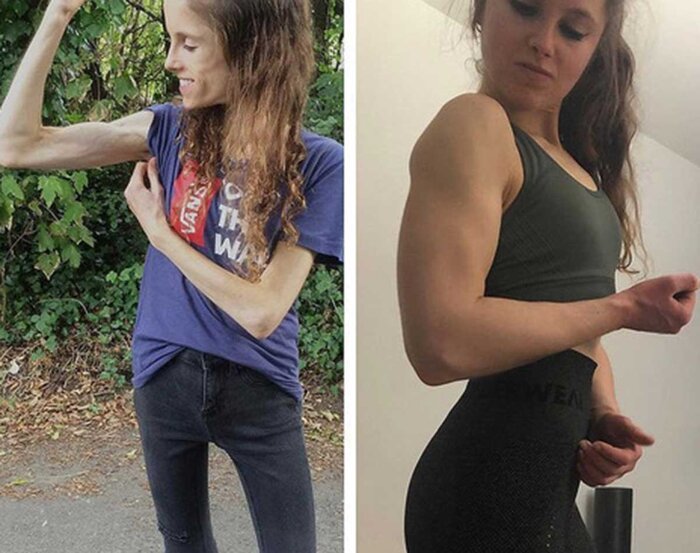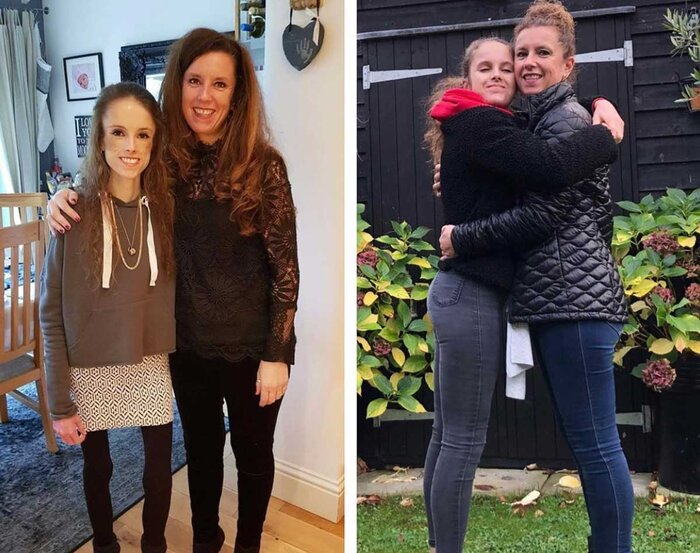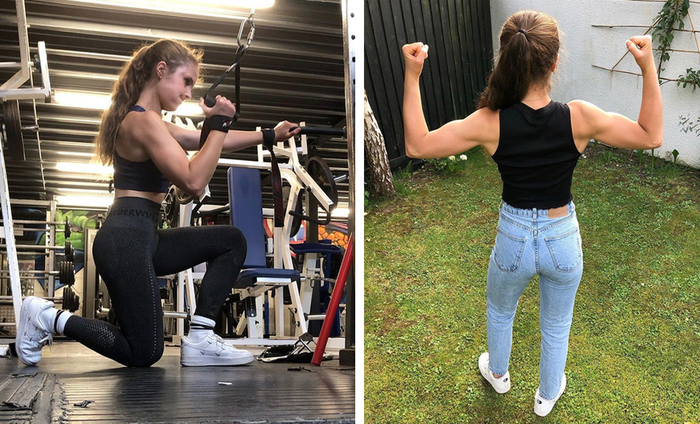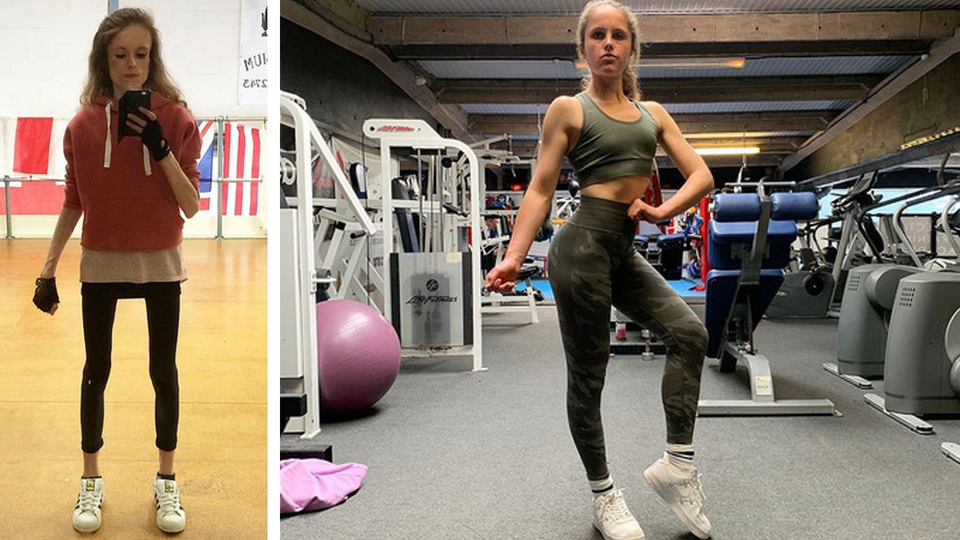Hannah Gane’s story is unusual, but unfortunately, parts of it are all too common; after years of suffering from extreme anorexia, her illness would have claimed her life if she hadn’t made a drastic change.
Inspired by images of bodybuilders and physique competitors, Gane took up weightlifting and her whole world changed. Now, instead of pushing her body to unhealthy extremes, Gane is focused on building strength and feeding her body to help it grow.
Images of anorexia are hard for some people to view, which is why Gane’s transformation photos are often blocked on social media sites. In response, we sat down with her to learn more about her story and how she was able to overcome such a difficult and damaging disease, and how she’s working to inspire others who might be struggling the same way she was.
BBCOM: You have such a unique story. How do people react to learning about it?
Hannah Gane: If you wrote my story down on paper, it’s very abnormal. Severely anorexic, going into weightlifting. It just doesn’t match up.
People sometimes criticize my story by saying that I’m going against the normal recovery model. The truth is there’s no right or wrong way to recover. It’s what works for you and what makes you recover.
Look at me now: I’m not anorexic anymore. Yes, I still have those negative thoughts, but I have completely got myself away from dying. Bodybuilding did that.

What led you to develop such severe anorexia?
My dad committed suicide when I was 13 years old, and that event threw my life upside down. We had to move out of our home. Obviously, it meant all our mental health was affected. Basically, I couldn’t control my life, so the only thing I could control was my food.
I lost a lot of weight very, very quickly. It just became so easy for me because I’ve got very strong willpower. My willpower is so strong it could kill me, and it nearly did.
What was the turning point?
I came home [from university] to visit my mom one weekend, and I was like, ”I can’t do this anymore.” So, I put myself in hospital. I wasn’t allowed to go to an eating disorder unit, because I was too ill—too thin—to go to the eating disorder unit. So, I had to gain enough weight to be able to go to the eating disorder unit, which sounds very stupid.
When you’re that ill, you literally lose everything. I couldn’t climb stairs, I couldn’t even lift my head off the floor. Your whole body just literally shuts down.
What inspired you to finally make a change?
You have so much time on your hands in those facilities, and there’s only so many word searches you can do. I ended up scrolling through Instagram, and I saw some girls’ transformation photos. They hadn’t had anorexia, but they had been very, very skinny. They got into weightlifting, and now they just look amazing.
The day I did finally choose to recover was when I hit my lowest weight. That day, I stepped on the scale and literally thought, ”If I carry on, I am going to die.”

I am very close to my mom, and I know that she’s already lost a husband—I can’t let her lose a daughter as well. She’s been by my side since day one. I can’t do this to her. That’s when I decided that bodybuilding was going to be the way that I recovered.
What were some of the first steps you took to get started?
When I did first start, I got myself a coach, like an actual bodybuilding coach who was experienced in anorexia. I have severe osteoporosis, and the worst part is my spine, so obviously doing weight training I do have to be very careful. Doing it on your own when you’re that ill is very difficult. I was very lucky with the help that I had.
As I got stronger, the feeling of getting stronger started to become the main focus for me. I finally started moving away from the look, and I got addicted to becoming better.
I set myself a goal: I want to compete in bodybuilding, I want to become a pro bodybuilder, I want to go to the Olympia one day. Ever since that day, I’ve just said to myself, ”You’ve got to go on. You’ve got to eat, you’ve got to train hard, you’ve got to stay committed to it.” I’ve made that decision in my mind to do it, and now I will never, ever go back.

What were some of the strength milestones you experienced?
There was one day I was with my personal trainer and I did my first-ever sit-up. Going from literally not being able to move properly or lift my head off the floor to my first sit-up—I cried my eyes out. The feeling of being able to do that—I can’t explain it. It sends goosebumps all over my body.
I did my first pull-up during lockdown. I set myself a goal and did a 30-day challenge where I did my first pull-up. I never used to be able to do press-ups, and then I set myself a challenge and now I can do sets of 10. I remember lifting, like, 5-kilo dumbbells on my dumbbell row, and now I can do 20 kilos.
How has your relationship with food changed with bodybuilding?
I eat more than some men right now, and I’m proud of that. I love my food now, and I have pleasure in making meals look amazing. I’ve always enjoyed food, but I made it something evil when I was ill.
Now, I know that that food is going to make me the best I can be. This is helping me get to my goal, so how can I look at it negatively? I had a check-in yesterday, and my coach increased my calories again, my macros. I just have to tell myself, ”This is good, this is going to keep me progressing.” Then today, I increased my dumbbell shoulder press. That’s the food. That’s winning.
Bodybuilding for me was the light in my life that I needed. Without bodybuilding, I wouldn’t be here today. The passion has just grown, and it grows every single day. That passion will beat any anorexic thoughts, it will beat any negativity. It always wins.
You can follow Hannah’s progress on her Instagram page.
